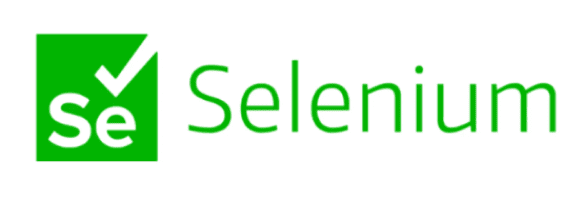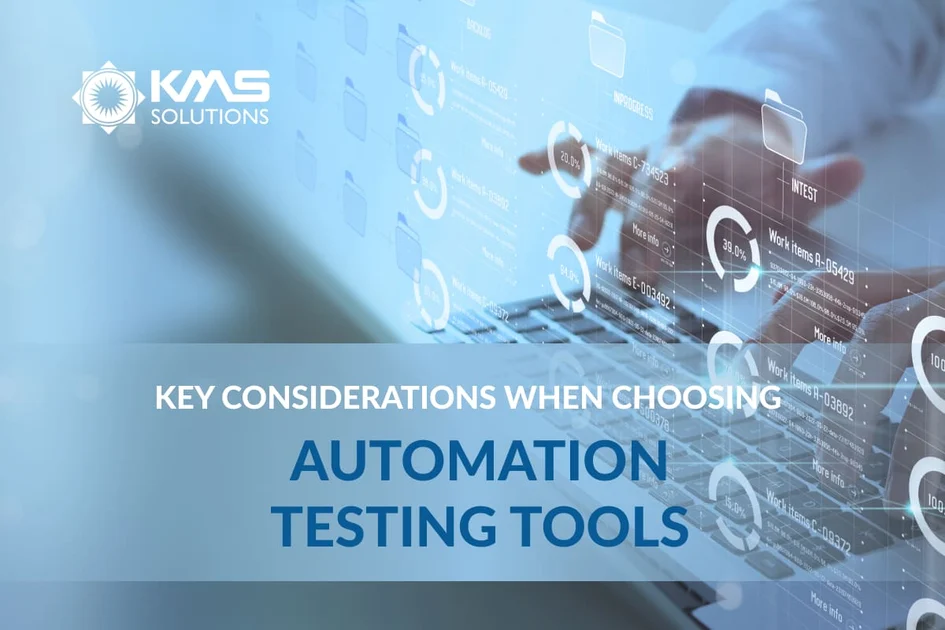The year 2022 seems to be another golden year for software sector growth. Indeed, given the transformation of customer behaviors in the digital era that requires considerable efforts in developing top-notch products to serve them, this growth seems likely to continue. As software development progresses, software testing continues to evolve as well. While a couple of years before, various software testing cases were done manually; however, in 2022, the transition to automated testing is anticipated to be spectacular.
automation testing tool is one of the most effective ways to enhance test coverage while increasing the overall functionality and effectiveness of your software and mobile apps. To take full advantage of automation testing, deciding which automation tool to choose is essential.
With a broad spectrum of automation testing tools available on the market, it stands to reason that not every tool will be the best suited for your project’s specifications. Hence, in this article, we will overview distinct kinds of testing tools and provide a checklist for you to choose the appropriate tools to accelerate the testing process.
What is an Automation Testing Tool?
A test automation tool is a software program that enables you to define software testing tasks and repeatedly execute them with little or no human intervention at all. There are numerous tools for different testing environments: desktop applications, mobile, web, and API. With these tools, you can deploy performance testing 24/7 and accelerate product launches.
Read more: Performance Testing In Software Testing: An Introduction
Cases ideal for test automation tools include repeated cases, multilingual sites, tedious cases, and broad and expansive cases. Selecting the appropriate test tool for your team and project can be the determinator of success in software testing automation.
Types of Automation Testing Tools
Based on the using purpose and functionality of test tools, we may categorize them into two groups: tools for functional testing and tools for non-functional testing.
Besides, all available automation testing tools can be divided into three main types in general:
1. Open-source Automation Tools
The community develops these platforms and allows users to access and use their source code without charging. This type of tool is the most popular choice for many automation testers with programming backgrounds because of its free access and the ability to customize advanced test cases.
2. Commercial automation tools
Commercial tools are developed for commercial use and are often distributed via subscription service plans. To utilize the program, users must purchase a paid license. This sort of technology usually offers more premium features and thorough customer care compared to open source software, which allows businesses or organizations to finish the whole testing process.
3. Custom Framework
There are niche projects for which a single open-source software or fixed commercial testing tool cannot fulfill the demands. They are mostly caused by variations in their testing processes and testing environments, resulting in more complex test automation solutions. To address such difficult cases, the QA team will need sufficient technical knowledge to independently develop customized automation testing software.
What to Consider when Selecting Automation Testing Tools for Your Project?
When you start searching for the appropriate tool, you might aim to look for the greatest one available on the market or research which large corporations and enterprises are using. However, this approach may not be suitable for your team due to different project demands and team sizes. Remember that you should not look for the best; choose the right one instead. Thus, before proceeding with the tool selection process, a deep understanding of your project will help QA practitioners identify them accurately.
Criteria for Evaluating Automation Testing Tools
 1. Team budget
1. Team budget
Here’s a fact: The more complex the automation testing tool you choose, the more it will cost your team. Therefore, you are required to calculate your budget thoroughly to select the tool that can bring out a positive ROI for your team and business in the long run. Depending on the budget, you can choose either of the three listed types of automation tools.
 2. Skills and experience possessed by team members
2. Skills and experience possessed by team members
Since automation testing is substantially more technical than manual testing, testers who want to use automation tools must have adequate programming ability to design and execute test scripts. This technical barrier tends to be the obstacle in adopting test automation for QA teams with little IT backgrounds. Codeless automation testing tools in execution have shown to be a potential solution to this bottleneck.
It’s necessary to understand your team member’s skills and knowledge to select suitable tools based on that. Otherwise, you’ll need to devote time and resources to improve team members’ expertise.
 3. Ability to meet testing requirements/ expectations
3. Ability to meet testing requirements/ expectations
There are some common technical metrics that you can analyze to find out the most suitable tool for your dedicated project:
- Platform: Which platform does the tool support – Mobile, Desktop, macOS, Linux, Windows, Unix?
- Programming and Scripting Languages: Consider AUT programming languages that the tool can support. The optimal tool will enable testers to prepare test scripts in their preferred languages, saving the time necessary to learn a whole new language and get comfortable enough with it to write comprehensive tests.
- Integration: The chosen tool must be able to integrate into CI/CD pipelines and external platforms to make sure testing continuity.
- Script Maintenance: To have robust, successful, and repeatable automated tests, you need to ensure test scripts that can swiftly reflect test requirements change.
- Data Sources: If you want to use the keyword or data-driven automation frameworks, the testing tool you choose should be capable of connecting to and retrieving data from relevant sources.
- Technical support: When using a new tool, you may inevitably need assistance, especially when getting acquainted with it. Check whether the tool comes with a large and active community and/or a responsive, reliable support function.
 4. Test report
4. Test report
Practically, all commercial and almost all open-source test automation solutions include issue and bug reporting. However, it may not be helpful enough for your QA team. You might need a more in-depth and comprehensive report that can assist the team in locating and diagnosing test coverage and the source of the problems. Moreover, such a report also reflects the management team’s effectiveness of your continuous automated testing projects.
Checklist for Choosing Automation Testing Tools
| Adoption ability |
|
| Scripting and supporting capabilities |
|
| Tools Usage |
|
Top Suggestions for Automation Testing Tools
At KMS Solutions, we use test automation tools for both functional and non-functional testing purposes. For your reference, we’ve carefully gathered a list of some reliable automation tools that meet all of the criteria above and can develop qualified and bug-free software.
Selenium

Selenium is an automation framework used extensively to perform web testing across multiple browsers & OS systems. As the tool can be modified by global developers and testers, you can effortlessly find community support through its official website and forums. As Selenium is a free and open-source framework, the tool offers a simple start for QA practitioners that are exploring the benefits of Automation Testing.
Selenium is compatible with several programming languages. Thus, testers can create browser-centered test scripts using their familiar languages and activate them across different environments. Selenium has become the standard framework upon which many other tools are developed.
Katalon Studio
Katalon is an all-in-one automation test platform for Continuous Testing and DevOps. It is interoperable with the vast majority of internet applications, mobile apps, desktop programs, and APIs that operate on Windows, macOS, or Linux.
The tool is applied widely by new testers worldwide due to its simple features and codeless extension. Moreover, it also provides plug-ins for extending automation capabilities and integrating with CI/CD systems. Katalon’s comprehensive reporting, real-time monitoring, and rapid feedback system make it simpler to track product quality, performance, and associated concerns.
JMeter

The Apache JMeter or JMeter is an open source tool consisting entirely of Java applications meant to load functional test behavior and assess performance. It was initially created to test Web Apps but then has expanded to other test functions. QA engineers can use it for unit testing and functional testing as well, though functional testing is limited.
Meter allows testers to perform load and performance tests on many apps, servers, or protocol types, including Web – HTTP, SOAP/REST Webservices, databases via JDBC, message-oriented middleware (MOM) via JMS, and more.
Read more: Top 4 Automated Testing Tools for Mobile Apps
Sum up
The process of assessing and choosing automation tools is challenging but rewarding. The appropriate tools will unlock your power of utilizing test automation to achieve the most significant outcomes with the fewest resources required. Since not every automation tool can suit your business’s needs, it’s essential to evaluate the aspects of your team first and then come to the checklist of automation criteria.
Each automation testing tool has its pros and cons, so if you’re struggling with picking the proper tool, KMS Solutions, with thousands of experts, can help you identify the testing solutions to optimize test coverage and accelerate time-to-market.





 License costs
License costs





